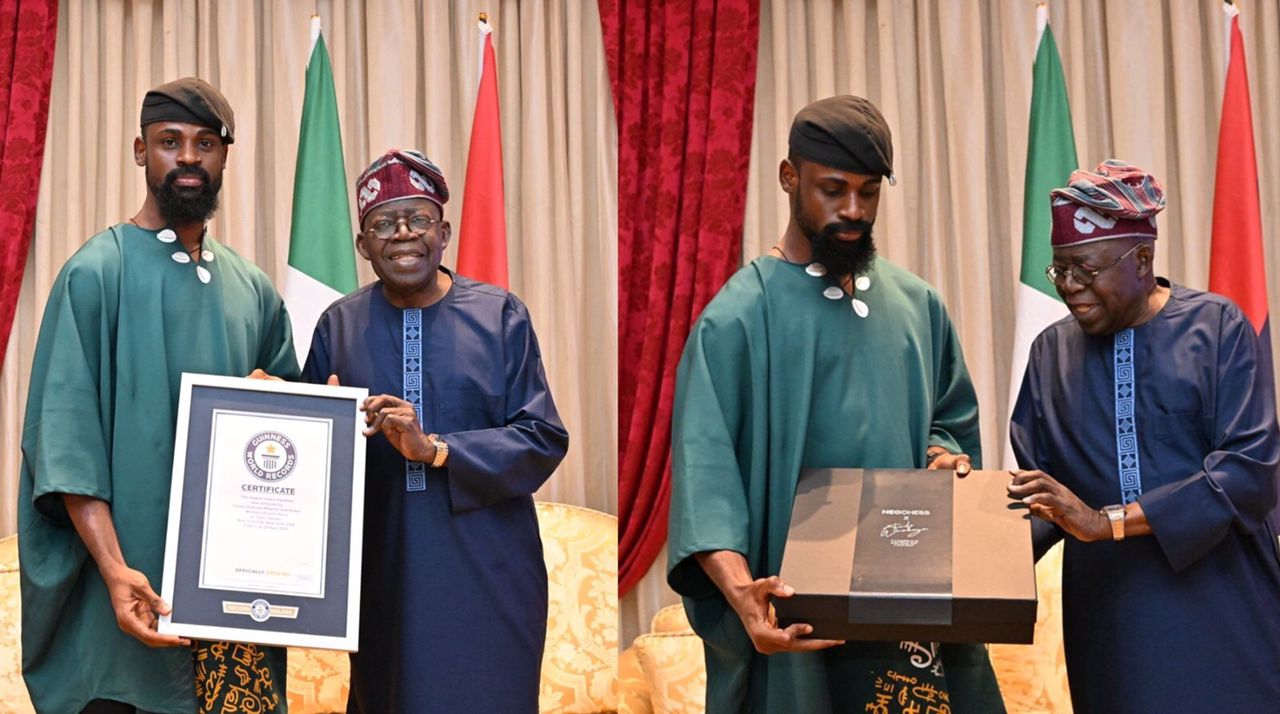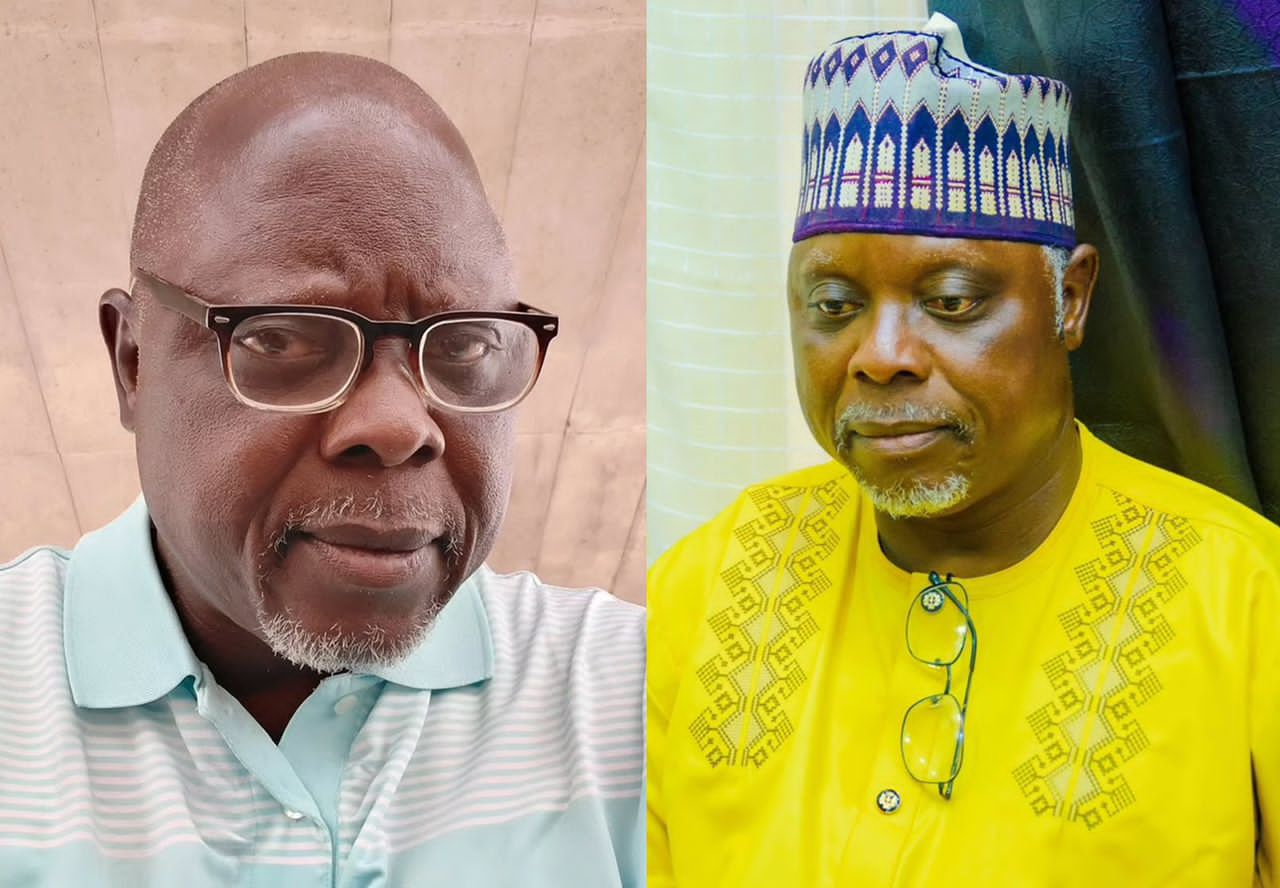
‘A Visit Is Not an Endorsement’: Tunde Onakoya Breaks Silence Amid Backlash Over Presidential Visit

Tunde Onakoya, the celebrated Nigerian chess champion and founder of the Chess in Slums initiative, has issued a firm and personal response following mounting criticism over his recent visit to President Bola Ahmed Tinubu. The visit, which drew attention across social media platforms and news outlets, sparked a wave of backlash from Nigerians who believed that Onakoya’s presence at Aso Rock signaled an implicit endorsement of the Tinubu administration. The philanthropist, who recently captured global headlines by breaking the world record for the longest chess marathon in Times Square, New York, is now at the center of a different kind of scrutiny—one rooted not in gameplay, but in the high-stakes arena of political perception.
Onakoya took to social media on Tuesday to clarify his intentions and reaffirm his commitment to non-partisan advocacy, emphasizing that his work and presence remain focused on elevating the lives of underserved children through chess education. “A visit is not an endorsement and I have no interest in partisan politics,” he wrote in a pointed message that has since gone viral. “If that ever changes, I will resign from my role.”
The response comes as part of a growing trend where public figures in Nigeria and beyond find themselves walking a tightrope between public engagement and political neutrality. For many, especially young Nigerians disillusioned by years of systemic failures, associating with political office—no matter the context—can be interpreted as complicity. This is the exact sentiment that Onakoya appears determined to confront, distinguishing between access and alliance.
Tunde Onakoya’s journey has been nothing short of inspirational. From organizing grassroots chess tournaments in Lagos slums to gaining international recognition for using chess as a vehicle for social change, his credibility as a youth leader and advocate has been largely unquestioned—until now. Critics of the visit argue that given the current socio-economic challenges in the country, any engagement with the presidency could be perceived as betrayal or, at the very least, tone-deafness. But supporters and neutral observers are urging the public to adopt a more nuanced perspective.
“He met the President. He didn’t join a political party,” one supporter wrote on X (formerly Twitter). “If he doesn’t have access, how will he advocate for policy support for the kids he fights for?” Another user pointed out the dangerous precedent of canceling activists who engage with government, warning that it could deter future changemakers from navigating official channels.
Onakoya’s clarification appears to be a response not just to public backlash, but to a deeper ideological conflict playing out among Nigeria’s youth—a conflict between engagement and purity. In a climate where trust in institutions is severely eroded, any contact with those in power is scrutinized through a skeptical lens. For some, the mere appearance of proximity is enough to overshadow a lifetime of community-driven work.
Yet, Onakoya is not the first to face this dilemma. Over the years, numerous activists, artists, and thought leaders have found themselves under fire for being seen with politicians, regardless of the context. What sets this moment apart is the weight of public expectation resting on Onakoya’s shoulders. He is not merely a symbol of success against the odds, but also a vessel of hope for many who see in him a form of leadership untouched by corruption or compromise. That hope, fragile as it is, was momentarily shaken by a single photo op.
But for Onakoya, his message is clear: engagement does not equate to endorsement. And if the reaction to his visit reveals anything, it’s that Nigeria is still grappling with how to balance advocacy with influence. Can one enter the corridors of power without being seen as part of the machinery? Can a changemaker speak truth to power while standing beside it?
Despite the noise, Onakoya remains unwavering in his mission. His track record speaks volumes—from slum-to-slum chess bootcamps to raising over $100,000 for his record-breaking chess marathon, all of which was directed towards educating and uplifting underprivileged children. These are not the actions of a man seeking political validation, but those of a visionary focused on systemic change, one child, one chessboard at a time.
In his own words, “If that ever changes, I will resign from my role.” It's a declaration of accountability, a personal pledge to the public that his integrity will not be compromised. For many, this may serve as enough assurance. For others, the optics of power still linger.
What this episode underscores is the fraught relationship between public trust and political power in Nigeria. Even a seemingly benign visit can spiral into controversy, not because of what was said or done, but because of what it might mean. In a country where political figures are rarely separated from public disappointment, it is perhaps inevitable that even the noblest of intentions will be tested.
As Tunde Onakoya moves forward, the weight of scrutiny may persist, but so too will the admiration of those who see in him a rare blend of humility, brilliance, and courage. He may have stepped into Aso Rock, but he has not, by his own assertion, stepped into politics. Whether or not the public fully accepts this distinction remains to be seen, but one thing is clear—Onakoya’s mission, like his chess game, is strategic, bold, and always for the people.


